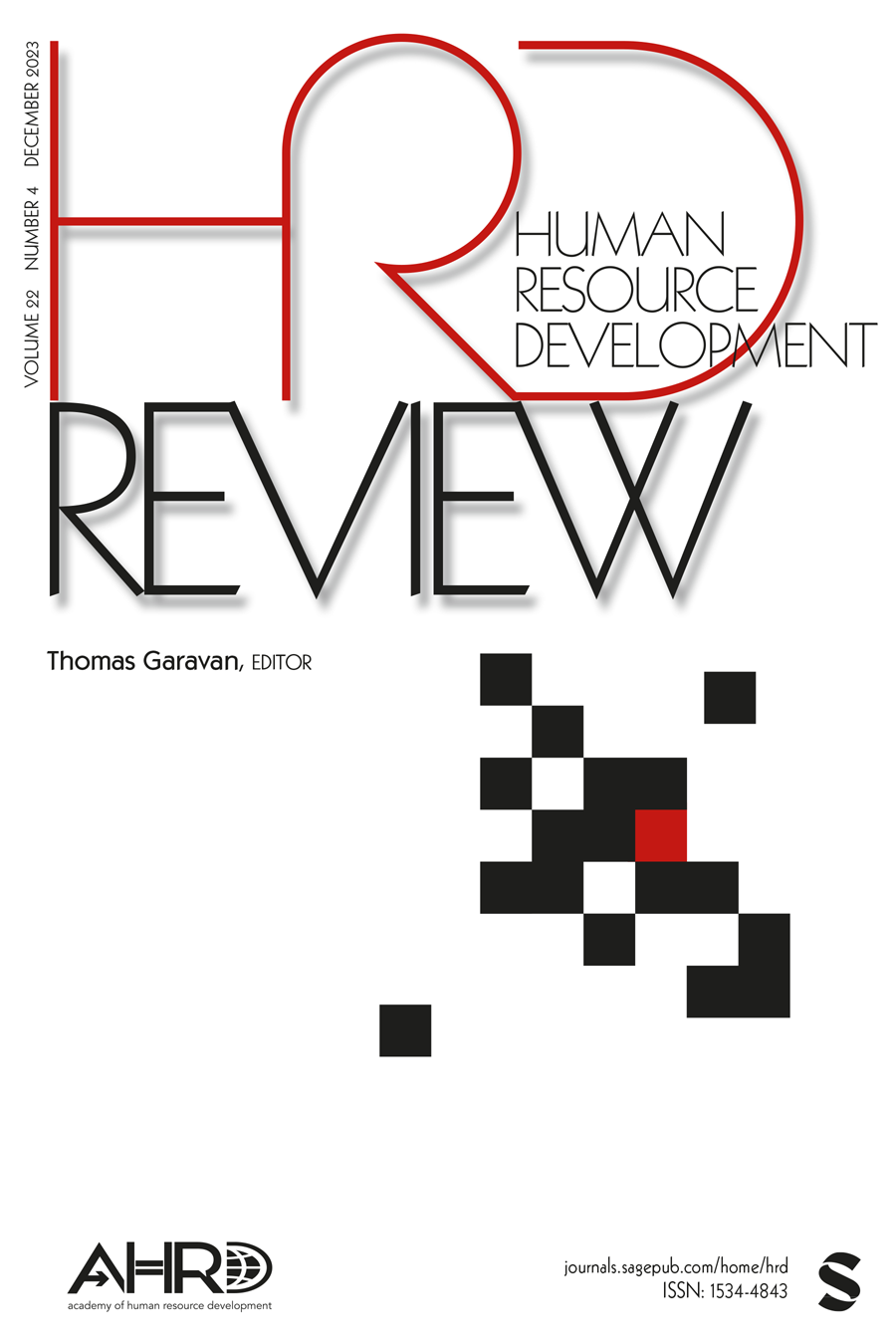运用口译方法挖掘人力资源开发潜力
IF 4.6
3区 管理学
Q1 MANAGEMENT
引用次数: 2
摘要
本文简要介绍了人力资源开发的定性方法,然后总结了管理学和组织学中定性研究方法的现状。我们的目的是从人力资源开发的管理和组织研究中吸取教训,以推进该领域的理论建设,以及对人力资源开发过程和实践的一般理解(见Lester,2023)。本文章由计算机程序翻译,如有差异,请以英文原文为准。
Using Interpretive Methods to Unleash the Potential of Human Resource Development
This paper briefly introduces qualitative approaches to Human Resource Development (HRD), before summarizing the current state of qualitative research methods in management and organization studies. Our intent is to draw lessons from management and organization studies for Human Resource Development, with the ambition of advancing theory building with the field, as well as general understanding of human resource development processes and practices (see Lester, 2023).
求助全文
通过发布文献求助,成功后即可免费获取论文全文。
去求助
来源期刊

Human Resource Development Review
MANAGEMENT-
CiteScore
9.60
自引率
17.20%
发文量
35
期刊介绍:
As described elsewhere, Human Resource Development Review is a theory development journal for scholars of human resource development and related disciplines. Human Resource Development Review publishes articles that make theoretical contributions on theory development, foundations of HRD, theory building methods, and integrative reviews of the relevant literature. Papers whose central focus is empirical findings, including empirical method and design are not considered for publication in Human Resource Development Review. This journal encourages submissions that provide new theoretical insights to advance our understanding of human resource development and related disciplines. Such papers may include syntheses of existing bodies of theory, new substantive theories, exploratory conceptual models, taxonomies and typology developed as foundations for theory, treatises in formal theory construction, papers on the history of theory, critique of theory that includes alternative research propositions, metatheory, and integrative literature reviews with strong theoretical implications. Papers addressing foundations of HRD might address philosophies of HRD, historical foundations, definitions of the field, conceptual organization of the field, and ethical foundations. Human Resource Development Review takes a multi-paradigm view of theory building so submissions from different paradigms are encouraged.
 求助内容:
求助内容: 应助结果提醒方式:
应助结果提醒方式:


